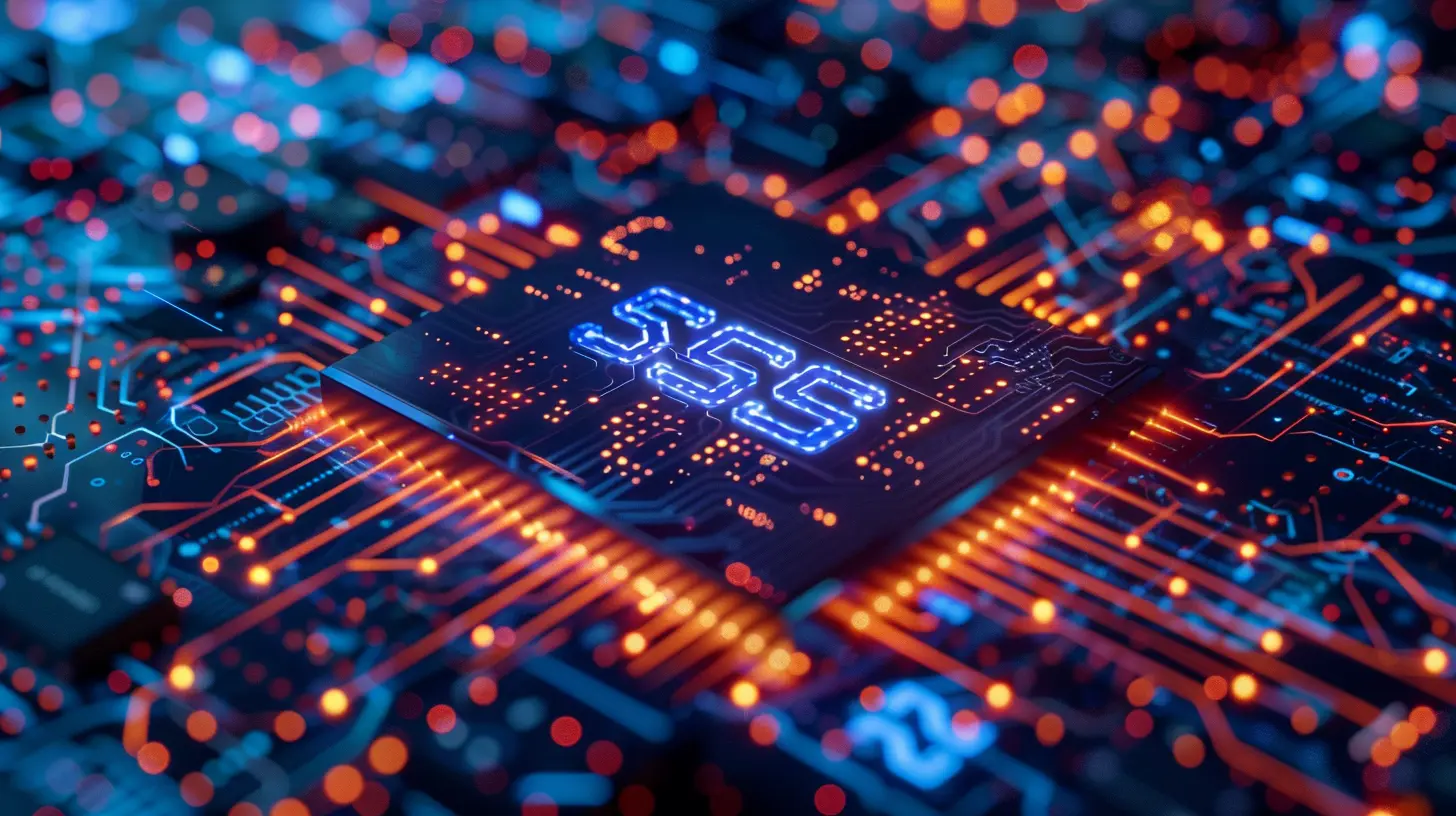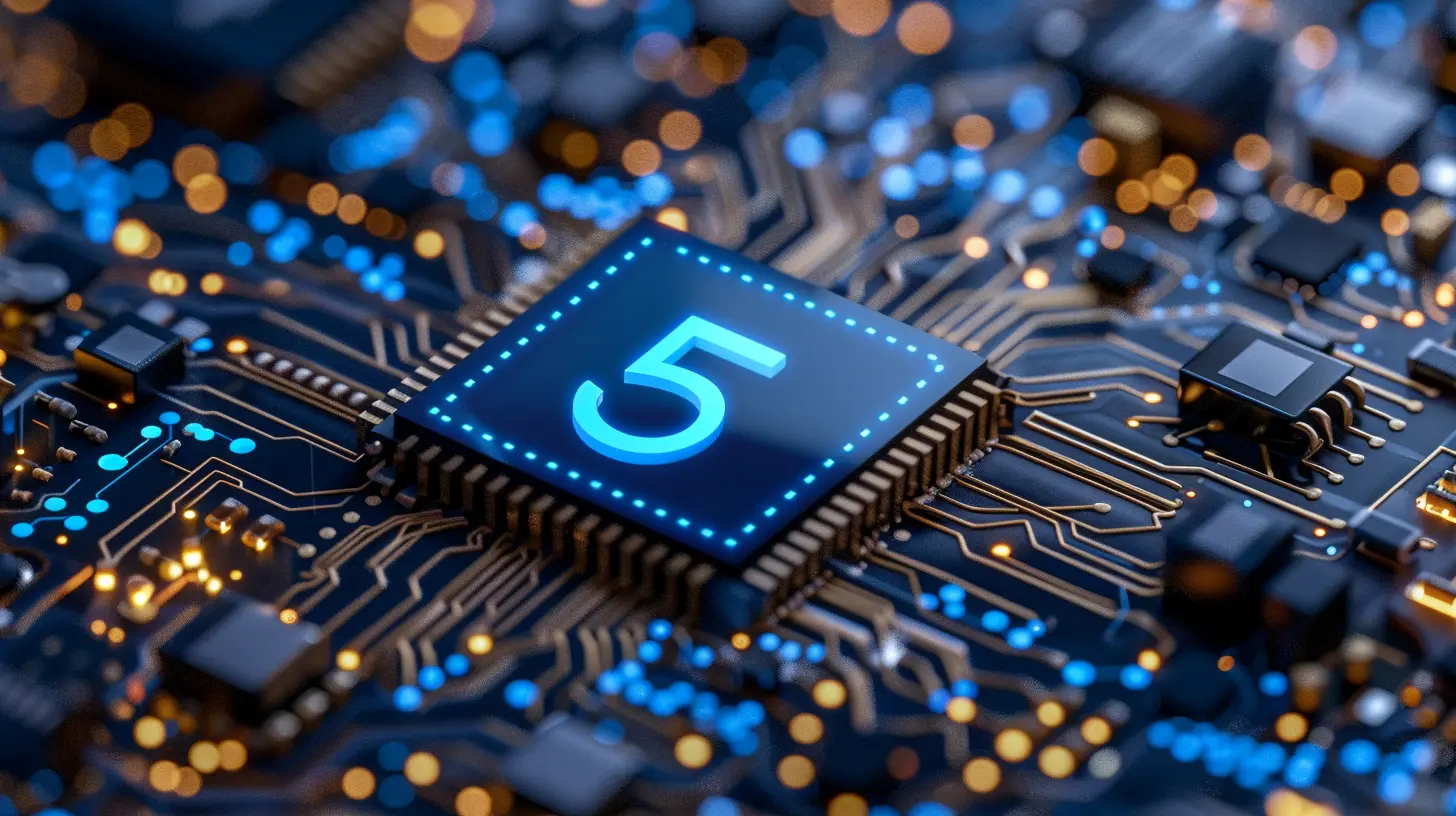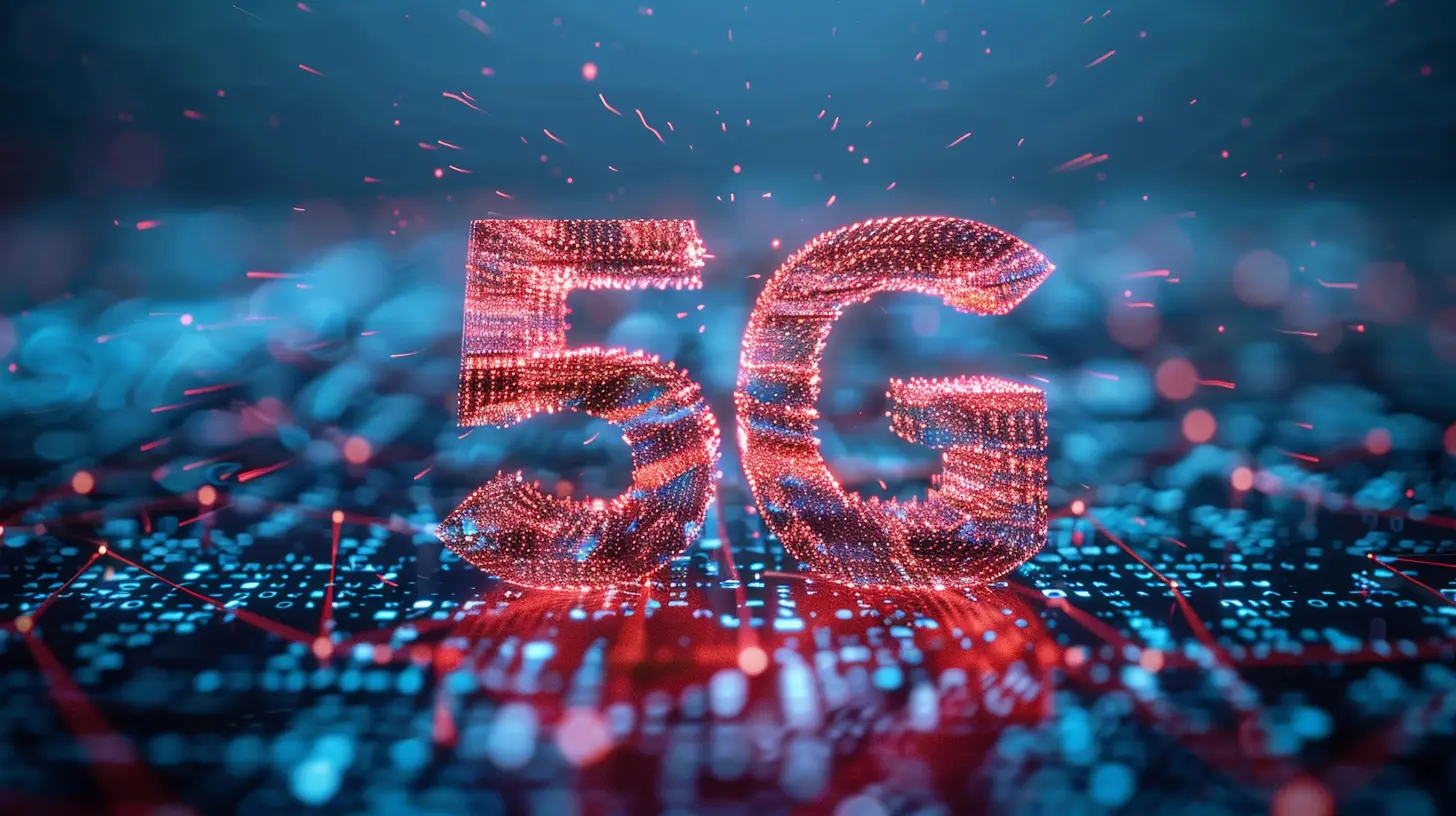How Cybersecurity is Adapting to the Rise of 5G Technology
31 October 2025
5G is not just another mobile network upgrade—it’s a game-changer. We're talking ultra-fast speeds, ridiculously low latency, and a connected world where everything from your smartwatch to your fridge talks to each other. Pretty cool, right?
But here’s the catch: with great speed comes even greater security risks.
As 5G rolls out across the globe, cybersecurity is scrambling to keep up. Let’s break down what this means for you, your data, and the future of digital defense.
What Makes 5G So Different (and Risky)?
If you’re thinking, “Isn’t 5G just faster internet?”—you’re only scratching the surface. 5G opens the door to a fully connected digital ecosystem. We're talking self-driving cars, smart cities, remote surgeries, and millions of IoT (Internet of Things) devices lighting up the network.Sounds like sci-fi? It’s already happening.
Now imagine all of these gadgets connected at once. That’s millions—possibly billions—of new entry points for hackers. Uh-oh.
Key Features of 5G That Affect Cybersecurity
- Decentralized Architecture: Unlike 4G, 5G is more software-based and relies heavily on cloud infrastructure. More moving parts = more attack surfaces.- Massive Device Connectivity: The number of connected devices is set to explode. That’s a security nightmare if not handled correctly.
- Network Slicing: 5G can split one physical network into multiple virtual networks. While this sounds efficient, it demands airtight segmentation to prevent data leaks.
- Lower Latency: Data travels faster, which means threats can act faster too. Security systems need to react in milliseconds, not seconds.
Let’s be real—5G isn’t just stretching the cybersecurity blanket. It’s tearing it open.
The Bigger Risk: IoT and 5G Together
If there's one duo that cybersecurity pros are sweating about the most, it's 5G + IoT. Here's why it's a big deal.IoT devices are notorious for being under-secured. Think of your smart doorbell, baby monitor, or that Internet-connected coffee maker (yeah, that’s a thing). Most of these gadgets are built for function, not security. Now, throw in 5G, which allows even faster connections and remote access on steroids.
It’s like giving every hacker on the planet a buffet of vulnerable devices—served hot and ready.
What Could Go Wrong?
- Botnets: Hackers can hijack thousands of weak IoT devices and use them to launch massive DDoS attacks.- Data Snooping: With more devices sharing more data, there’s more for cybercriminals to intercept.
- Unauthorized Access: If one device in a network is compromised, it can act like a trojan horse for others.
It’s digital dominoes—but with real-life consequences.
How Cybersecurity Is Rising to the Challenge
Alright, enough doom and gloom. Let’s talk solutions.Cybersecurity experts aren’t just sitting around. They’re adapting—fast. Here’s how they’re flipping the script on cyber threats in the 5G era.
1. AI and Machine Learning to the Rescue
When threats move at the speed of 5G, manual detection doesn’t cut it anymore.That’s where artificial intelligence (AI) and machine learning (ML) come in. These bad boys can analyze mountains of data in real-time and detect anomalies before they become disasters.
Think of AI as the guard dog that never sleeps, constantly sniffing out intruders without a coffee break.
Use Cases:
- Identifying abnormal traffic patterns- Flagging suspicious device behaviors
- Automating threat responses
With the help of AI, the goal is to stay one step ahead of cybercriminals—even when they're using AI themselves.
2. Zero Trust Architecture (ZTA)
In a world where every device on the network could potentially be a traitor, “trust but verify” is old news. Now, it’s “trust no one.”Zero Trust Architecture assumes that no user or device (even internal ones) should be trusted by default. Every request has to be authenticated, authorized, and encrypted.
It’s basically the bouncer at the door constantly checking your ID—even if you've been inside a hundred times before.
3. Enhanced Encryption Standards
5G means more data flying around. Naturally, keeping that data locked up tight is crucial.Modern encryption methods are being beefed up to handle the volume and speed of traffic on 5G networks. End-to-end encryption is becoming the norm, not a fancy add-on.
And with quantum computing inching closer, forward-thinking cybersecurity firms are already exploring post-quantum encryption to stay ahead of the curve. That’s next-level prep.
4. Security by Design
Gone are the days when cybersecurity was slapped on at the end of a project like a band-aid.Now, developers are baking security into the very core of applications, networks, and devices. It's like putting a security system in a house while it's still under construction, not after it's been robbed.
This proactive approach is critical in the 5G era, where patching vulnerabilities after launch just won’t cut it.
The Role of Governments and Regulations
As much as we’d like to think tech companies can handle this on their own, the truth is—governments need to step in too.Global Security Standards
With 5G rolling out everywhere, there's a push for international standards in cybersecurity. Because let’s face it—a vulnerability in one country’s network could become a global issue.Organizations like the ITU (International Telecommunication Union) and NIST (National Institute of Standards and Technology) are working hard to set fresh guidelines for securing 5G infrastructure.
Supply Chain Security
There’s growing concern about where 5G hardware and software components come from. If a provider embeds a backdoor in the network gear, it could lead to widespread surveillance or sabotage.This is why countries like the U.S. are scrutinizing foreign companies involved in 5G rollouts. It’s not paranoia—it’s protection.
Challenges That Still Linger
Despite all these efforts, the road ahead is far from smooth.Legacy Systems
Many companies still rely on outdated tech that wasn’t built with 5G in mind. Integrating new security protocols with legacy systems is like trying to fit a square peg into a round hole.Human Error
Spoiler alert: the biggest cybersecurity threat in any system is still… us.Poor passwords, phishing attacks, and simple mistakes open the door for even the most sophisticated hacks. No matter how advanced 5G security gets, it won’t mean much if people keep clicking on shady email links.
Cost and Complexity
Strengthening cybersecurity in a 5G environment isn't cheap or simple. Small organizations may struggle to keep up, making them prime targets for attackers.What You Can Do (Yep, You)
So, what can you do as an individual—or even as a business—to stay safe in the 5G era?For Individuals:
- Use strong, unique passwords on all devices- Keep your software and gadgets updated
- Be cautious with IoT devices—choose trusted brands with solid security reputations
- Don’t ignore those two-factor authentication (2FA) prompts!
For Businesses:
- Invest in a robust cybersecurity strategy tailored for 5G- Train employees regularly on cyber hygiene
- Partner with vendors who prioritize security
- Enable real-time network monitoring and threat detection
5G might be the future—but staying secure is your responsibility too.
The Future Looks Fast—and Secure (Hopefully)
We’re at the dawn of a new era. 5G will push the boundaries of what’s possible in tech, innovation, and lifestyle. But those perks come with a price: the need for smarter, faster, and more adaptive cybersecurity.The good news? We’re already moving in the right direction.
With AI doing the heavy lifting, Zero Trust models locking doors tighter than a vault, and developers building safety nets from the ground up, the digital world is gearing up for the 5G revolution.
Just remember—cybersecurity isn’t a one-off fix. It’s a continuous process. Like changing the oil in your car or updating your apps—it needs to be regular, proactive, and forward-looking.
Because in a world where everything is connected, one weak link could bring down the whole chain.
all images in this post were generated using AI tools
Category:
CybersecurityAuthor:

Gabriel Sullivan
Discussion
rate this article
1 comments
Miles Patterson
Great article! It’s fascinating to see how cybersecurity is evolving alongside 5G technology. As our connectivity grows, staying safe online becomes more crucial than ever. Excited for what’s next!
November 2, 2025 at 3:21 AM

Gabriel Sullivan
Thank you! I'm glad you found the article insightful. Indeed, the evolution of cybersecurity in tandem with 5G is crucial for our online safety. Exciting times ahead!


